
Cristian Sáinz Castro is a Mexican pop singer. He is the son of actors Verónica Castro and Manuel "El Loco" Valdés, and nephew of actors Ramón Valdés and Germán "Tin-Tan" Valdés. Castro has sold over 12 million copies, making him one of the best-selling Latin music artists of all-time.
Latin Pop Airplay is a record chart published on Billboard, an American music and entertainment magazine, and a subchart of the Latin Airplay chart. The chart focuses on Latin pop music, namely Spanish-language pop music. It was established by the magazine on October 8, 1994 as a subchart of the Hot Latin Songs chart until October 2012 when the Hot Latin Songs changed its methodology. The first number-one song on the chart was Mañana by Cristian Castro. This chart features only singles or tracks and like most Billboard charts, is based on airplay; the radio charts are compiled using information tracked by from Nielsen Broadcast Data Systems (BDS), which electronically monitors radio stations in more than 140 markets across the United States. The audience charts cross-reference BDS data with listener information compiled by the Arbitron ratings system to determine the approximate number of audience impressions made for plays in each daypart. With the issue dated August 15, 2020, Billboard revamped the chart to reflect overall airplay of Latin pop music on Latin radio stations. Instead of ranking songs being played on Latin-pop stations, rankings will be determined by the amount of airplay Latin-pop songs receive on stations that play Latin music regardless of genre. The current number-one song on the chart is "Soltera" by Shakira.

Azul (Blue) is the seventh studio album recorded by Mexican singer and songwriter Cristian Castro. It was released by BMG U.S. Latin on June 5, 2001. It was produced again by Colombian songwriter and record producer Kike Santander working last album Cristian's Mi Vida Sin Tu Amor (1999). It was nominated Grammy Award for Best Latin Pop Album in the 44th Annual Grammy Awards on February 27, 2002. The title track, "Azul", topped the Latin charts.
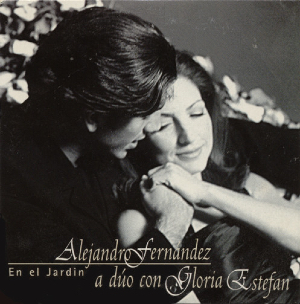
"En El Jardín" is a song written by Kike Santander and performed by Mexican recording artist Alejandro Fernández. It was co-produced by Santander and Emilio Estefan and features Cuban-American singer Gloria Estefan. It was released as the second single from Me Estoy Enamorando by Sony Music Mexico in 1997. The song is a pop ballad and portrays both singers falling in love, as if the love blossomed from a garden. A music video featuring both artists was made for the track.

"Abriendo Puertas" is a song from Cuban American singer-songwriter Gloria Estefan's sixth studio album, of the same name (1995). The song was written by Kike Santander, who handled production alongside Gloria's husband Emilio Estefan. It was released as the lead single from the album on September 19, 1995. The song is a vallenato and son cubano tune that metaphorically deals with opening doors and closing wounds. Its music video features Estefan performing the song while also showing scenes of farmers planting crops. The song received positive reactions from music critics, who mostly praised the instruments. Commercially, it topped both Billboard's Hot Latin Songs and Tropical Airplay charts in the United States and peaked at number three on the Dance Club Songs chart as well.

"Más Allá" is a song from Cuban-American singer-songwriter Gloria Estefan's sixth studio album, Abriendo Puertas (1995). The song was written by Kike Santander, who handled production alongside Gloria's husband Emilio Estefan. It was released as the second single from the album in December 1995. A Christmas bolero ballad, the song utilizes church bells and lyrically deals with selfless love. The song received positive reactions from music critics, who mostly praised the instruments. Commercially, it topped both the Billboard Hot Latin Songs and Latin Pop Airplay charts in the United States. Gloria Estefan performed the song live for Pope John Paul II at the Vatican and for then-US President Bill Clinton during a televised holiday special. Estefan re-recorded the song in 2020 for her fourteenth studio album Brazil305 and incorporated Brazilian music.

Flavio Enrique "Kike" Santander Lora is a Colombian-American composer, record producer, arranger and entrepreneur. He is considered to be one of the principal Latino composers of the day, having worked with artists such as David Bisbal, Cristian Castro, Thalía, Chayanne, Natalia Oreiro, Diego Torres, Davi Wornel, Alejandro Fernández, Olga Tañón, Bacilos, José Luis Rodríguez «El Puma» and Gloria Estefan among others. Santander has composed more than 710 songs and has sold over 25 million albums worldwide. His work as songwriter and producer includes themes such as Let's Get Loud by Jennifer Lopez, Abriendo puertas by Gloria Estefan, Me Estoy Enamorando by Alejandro Fernández, Mi Vida Sin Tu Amor by Cristian Castro, and Premonición by David Bisbal, as well as many songs recorded by artists such as Thalía, Natalia Oreiro, Gisselle, Edith Márquez, Luis Miguel, Soledad Pastorutti and the Spanish song for Eurovision Song Contest 2004, amongst others.

"Da la Vuelta" is a song written by Emilio Estefan and Kike Santander and performed by American singer Marc Anthony. Produced by Anthony, Estefan, and Ángel "Cucco" Peña, it is a salsa track which deals with the singer letting go of his former lover. It is one of the three Spanish-language songs to be included on Anthony's 1999 self-titled album and was released as a promotional single in the same year.

"Rosalinda" is a song by Thalía, released as the fifth single from her album Arrasando.
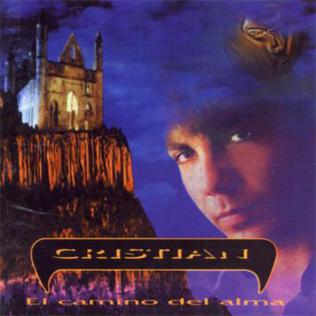
El camino del alma (The path of the soul) is the third studio album released by Mexican Latin pop singer Cristian Castro. It was released on August 15, 1994. Its major hit was the cover Juan Gabriel's "Mañana, Mañana". The album was nominated in 1996 for Best Latin Pop Album in the Grammy Awards and a Lo Nuestro Award for Pop Album of the Year.
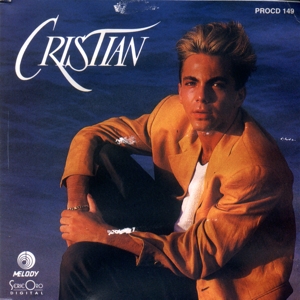
"Nunca Voy a Olvidarte" is a song written by Roberto Belester and first recorded by Mexican grupero band Bronco for their album Salvaje y Tierno (1991). In the song, the protagonist is leaving and vows to never forget the time he spent with his lover. In 1993, Mexican singer-songwriter Cristian Castro covered the song on his album, Un Segundo en el Tiempo. Castro's version peaked at number-one on the Billboard Hot Latin Songs chart in the United States became his first number-one single.
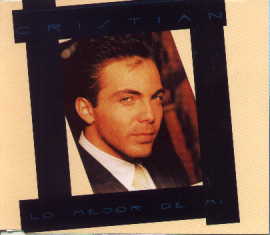
"Lo Mejor de Mí" is a song written and produced by Rudy Pérez and first recorded by Spanish singer Juan Ramon for his second studio album Por Haberte Amado Tanto (1990). In the song, the protagonist tells his lover how he gave his best despite not meeting his lover's expectation. In 1997, Mexican recording artist Cristian Castro covered the song for his fifth studio album Lo Mejor de Mí which Pérez also produced and arranged. Castro's version peaked at number-one on the Billboard Hot Latin Songs and the Billboard Latin Pop Songs charts in the United States. The song received a Billboard Latin Music Awards and a Lo Nuestro nomination for Pop Song of the Year. Pérez earned the American Society of Composers, Authors and Publishers award in the Pop/Ballad field.
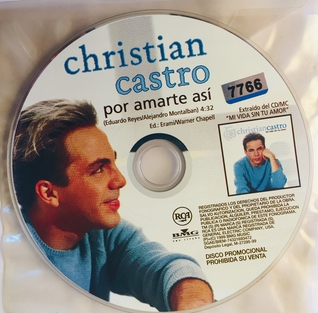
"Por Amarte Así" is a song written by Alejandro Montalbán and Eduardo Reyes and performed by Mexican recording artist Cristian Castro. It was produced by Kike Santander and released in 2000 as the fourth single from his sixth studio album Mi Vida Sin Tu Amor (1999). Lyrically, the song is about a man who promises to keep loving his lover even though she is gone. In the United States, it peaked at number three and two on the Billboard Hot Latin Songs and Latin Pop Songs charts and received a Billboard Latin Music nomination for Pop Track of the Year. "Por Amarte Así" was the fifth best-performing Latin single of 2001 in the United States.

"Mañana, Mañana" is a song written by Mexican singer-songwriter Juan Gabriel. Argentine singer Libertad Lamarque performed the song in the Mexican movie La loca de los milagros. Juan Gabriel released his recording of the song, a duet with Estela Nuñez, on his album Ella (1979). The song describes the departure of a lost love who will never return.

"Vuélveme a Querer" is a song written and produced by Jorge Avendaño Lührs and performed by Mexican recording artist Cristian Castro for the compilation album Boleros: Por Amor y Desamor (1995). The song speaks of a protagonist who yearns for his lover to return. In the United States, the song peaked at number two on the Billboard Hot Latin Songs and number one on the Billboard Latin Pop Songs chart. It received a Billboard Latin Music Award and a Lo Nuestro nomination for Pop Song of the Year the following year. Avendaño received an award in the Pop/Rock category at the American Society of Composers, Authors and Publishers (ASCAP) Awards of 1997

"Si Tú Supieras" is a song written by Kike Santander and performed by Mexican recording artist Alejandro Fernández. It was co-produced by Santander and Emilio Estefan and was released as the first single from Me Estoy Enamorando by Sony Music Mexico on 18 August 1997. The song is a bolero-pop ballad with ranchera influences and portrays the singer yearning for his lover to know how much she means to him. A music video was made for the track and was used as the main theme for the Mexican telenovela María Isabel.

"No Sé Olvidar" is a song written by Kike Santander and performed by Mexican recording artist Alejandro Fernández. It was co-produced by Santander and Emilio Estefan and was released as the third single from Me Estoy Enamorando by Sony Music Mexico in 1997. The song is a bolero-pop ballad with ranchera influences and portrays the singer desperately trying to forget his lover. A music video was made for the track which features Fernández hopelessly attempting to not remember his lover only to slowly delve into insanity. It received a nomination for Video of the Year at the 1998 Lo Nuestro Awards.
The 7th annual Billboard Latin Music Awards, which honor the most popular albums, songs, and performers in Latin music, took place in Miami.

"Júrame" is a song by American singer Gisselle from her seventh studio album, Voy a Enamorarte (2000). The song was written and produced by Colombian musician Kike Santander. It was recorded twice, as a pop ballad and a merengue track, respectively. In the lyrics, it deals with love's ambition. Both versions were released as a single from the album by BMG US Latin in 2000. A music video for the ballad version was filmed in Florida.
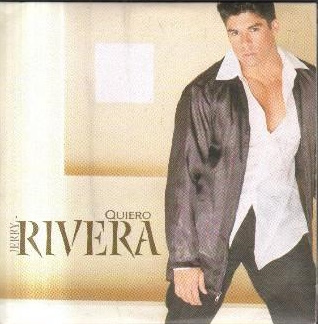
"Quiero" is a song by Puerto Rican singer Jerry Rivera from his 11th studio album Rivera, (2001). The song was co-written by Martha Cancel, Ray Contreras, and James Nicholas Greco and produced by Bebu Silvetti. It is a pop ballad in which the singer pays homage to women. A salsa version of the track was also recorded which was arranged and produced by Ramón Sánchez. It was released in January 2001 by BMG US Latin as the lead single from the album in January 2001. A music video for "Quiero" was directed by Juan Basanta and features Rivera in various background flirting with a woman.


















